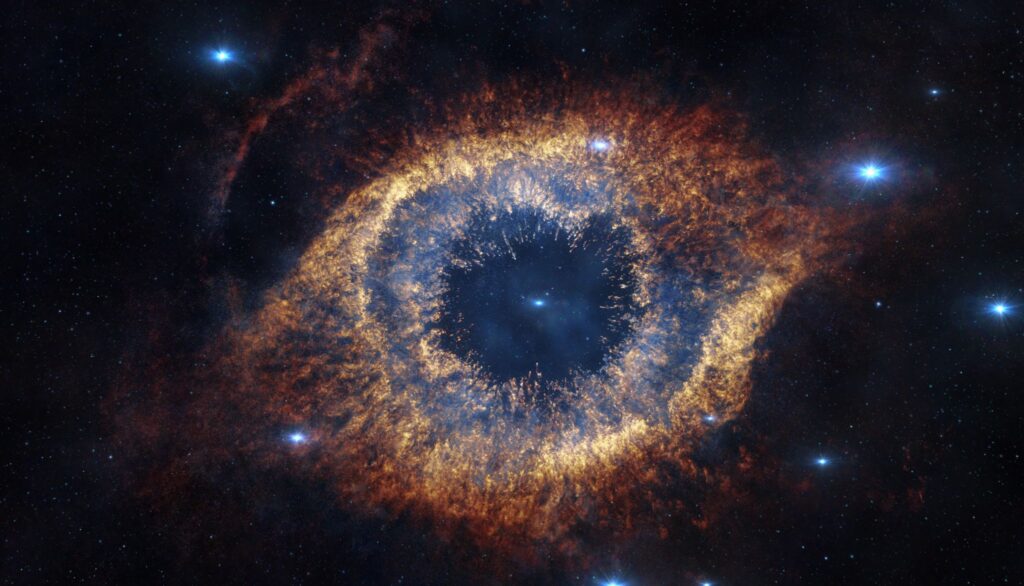Recent years have seen a rise in interest in Biocentrism, the idea that holds that life and consciousness are essential to the universe’s existence. Proponents of biocentrism contend that rather than the universe creating life, the opposite is true. Despite its enticing sound, this theory has encountered some skepticism from the scientific community. We’ll discuss the idea of biocentrism in this blog article, look at some of its main points, and consider the facts and rebuttals that have helped to disprove it.
The Basics of Biocentrism
Let’s first examine the core concepts of biocentrism in order to comprehend the concept. Biocentrism postulates that life and consciousness are what propel the universe into existence. Dr. Robert Lanza and other proponents of this idea contend that the world is created by our perception of it. Essentially, biocentrism says that the universe would not exist if there were no living things to view it. The Controversy Surrounding Biocentrism
Despite its seemingly revolutionary appearance, biocentrism has drawn a lot of criticism from the scientific community. Many scientists contend that it is largely based on philosophical and metaphysical presumptions and lacks empirical support. The assertions of biocentrism, according to its detractors, are more philosophical than scientific. Experiments, verifiable hypotheses, and visible data are the foundation of science. Contrarily, biocentrism frequently fails to meet these requirements.
Debunking Biocentrism: The Evidence
- Lack of Empirical Evidence: The main critique leveled towards biocentrism is that its statements are not backed up by any empirical data. Although the theory presents interesting philosophical arguments, it does not offer verifiable, repeatable scientific data. In contrast, a substantial body of actual data supports well-established scientific hypotheses like evolution and the Big Bang theory.
- The Anthropic Principle: According to this theory, life appears to be perfectly suited for the universe since we would not be here to witness it. Using this idea, some biocentrists contend that consciousness is essential to the universe. Critics respond, however, that natural selection and the multiverse hypothesis—two theories that do not require the mind as a basic element of the universe—can explain the anthropic principle.
- Misinterpretation of Quantum Physics: In order to bolster its arguments, biocentrism frequently refers to interpretations of quantum physics. Because quantum mechanics is a very complicated and misunderstood subject, incorrect interpretations might result in incorrect results. Numerous physicists contend that the biocentric understanding of quantum mechanics is excessively straightforward and devoid of scientific integrity.
- Occam’s Razor: According to this scientific theory, the most plausible answer is frequently the one that is easiest to understand. When more straightforward explanations, like natural physical laws, may explain the observed happenings in the cosmos, biocentrism presents a convoluted and unproven theory—that the mind generates the universe. Scientifically speaking, biocentrism is against Occam’s Razor since it adds needless complication.
The Search for True Life Science
Even though biocentrism might not withstand scientific examination, it’s crucial to recognize that there is always a need to learn more about life and awareness. Science is always trying to figure out the mysteries of the cosmos and our place in it. Real-world science makes an effort to use the scientific method, thorough experimentation, and empirical data to support its results.
In the pursuit of a deeper comprehension of existence and awareness, scholars are delving into domains including neuroscience, psychology, and quantum physics. These fields present viable paths toward understanding the nature of consciousness without depending on speculative metaphysical theories.
Conclusion
With its controversial assertions on the place of consciousness in the cosmos, biocentrism has generated a great deal of discussion in both philosophical and scientific circles. It presents a fascinating viewpoint on our place in the universe, but in the end, it is unable to live up to the exacting requirements of empirical data and scientific investigation.
It’s crucial to keep an open mind to new concepts while critically analyzing them in the quest to comprehend the true science of life and awareness. We continue to deepen our understanding of the cosmos and our place in it through science, which is a dynamic process that changes in response to new data. Even while biocentrism might not deliver on its promises, it has contributed to meaningful conversations regarding the nature of reality and our role in forming it.



